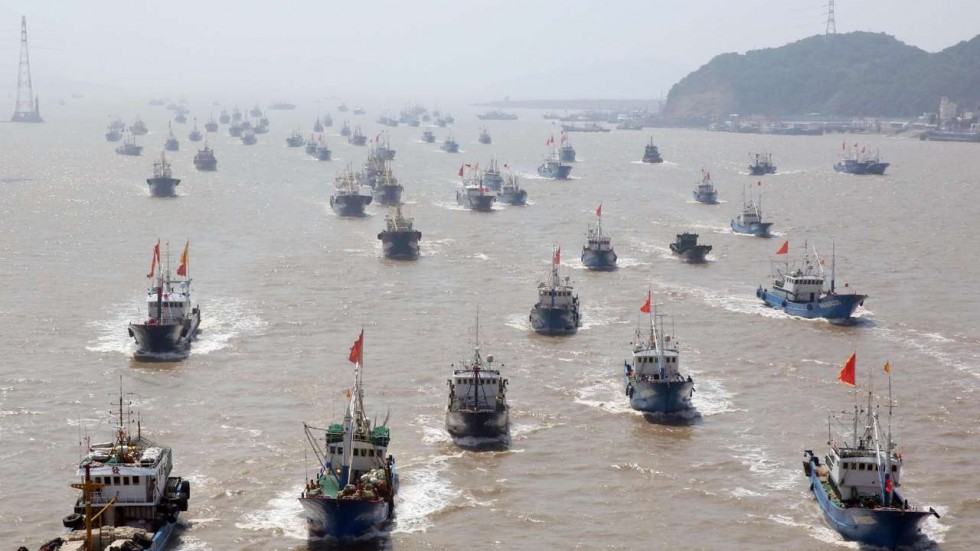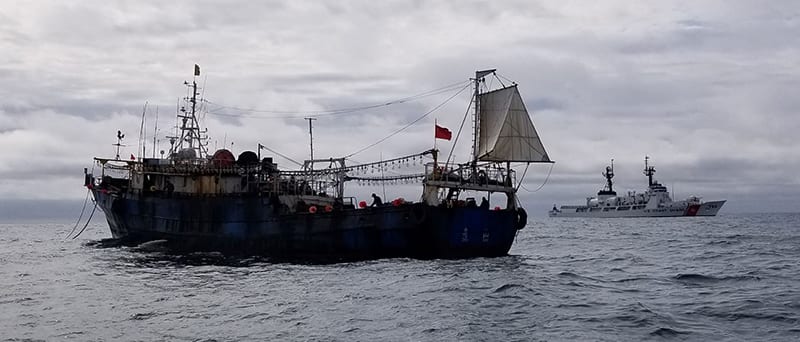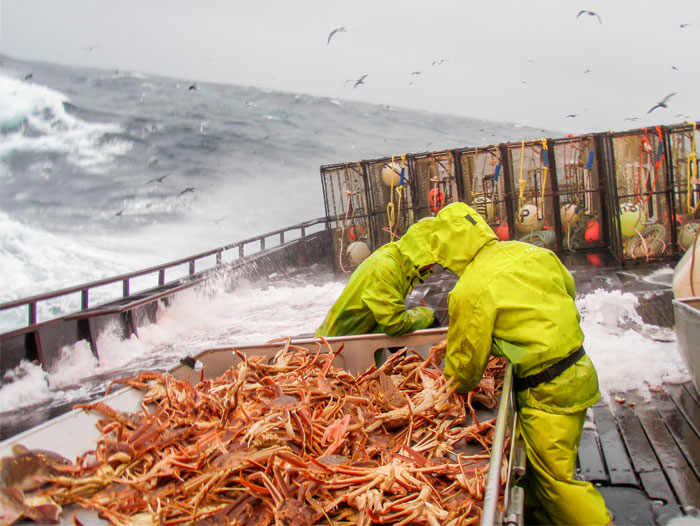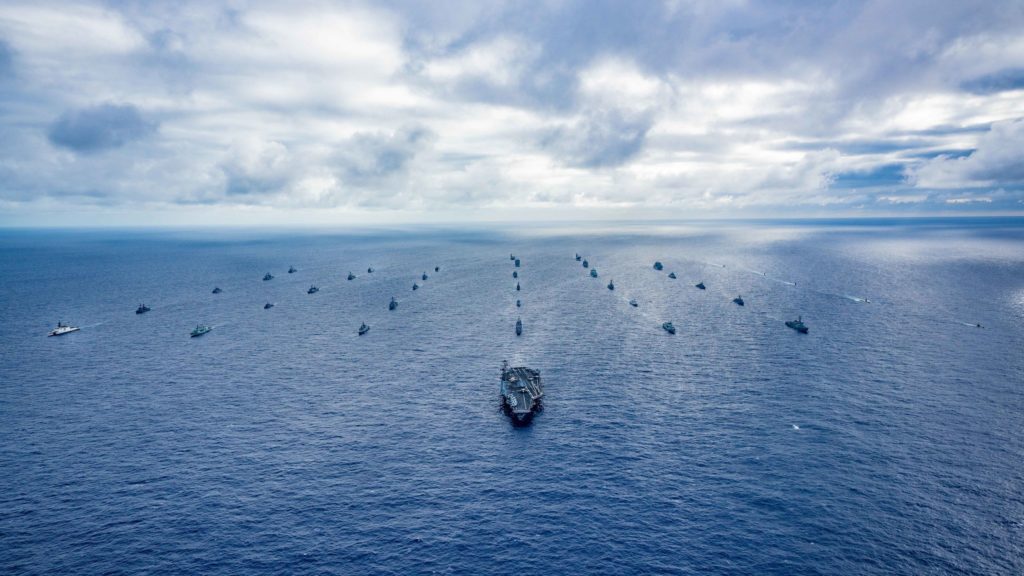China overfishing in distant waters
A new report from Future Directions International (the “Report“), based in Australia, is highlighting concerns about illicit proceeds and the fishing industry, particularly with China.
The Report, available here, says that China has the largest distant water fishing fleet in the world, estimated to be over 3,000 vessels, accounting for 40% of the distant fishing vessels worldwide. By comparison, the US has 300 distant water fishing vessels. The Report says that the Chinese fishing fleet is militarized and there is anecdotal evidence that the armed Chinese Coast Guard often accompanies Chinese fishing vessels to distant waters. The Chinese maritime militia is a subset of China’s national militia. China is the only fisheries superpower.

The Report notes that China has overfished its own waters, and moved to distant waters where it is exploiting the waters of other countries, particularly in Latin America and West Africa where enforcement tends to be weakest.
Illegal fishing off Canada
Illegal fishing also occurs off the coasts of Canada. This article here on homeland security, describes a two-month patrol by the US Coast Guard through the North Pacific Ocean in an international law enforcement operation to detect and deter illegal fishing. During the operation, the US Coast Guard conducted at-sea inspections on 11 foreign fishing vessels and reported 14 suspected violations involving three Chinese fishing vessels fishing for squid. As a result of the inspections, the fleet of 31 foreign vessels departed to avoid further inspection.

Global rankings of IUU
According to the IUU Fishing Index, available here, China ranked the worst in terms of illegal, unreported and unregulated fishing, referred to as IUU.
IUU fishing continuing
At the beginning of this year, China said it was taking steps to stop illegal distant water fishing originating from its vessels.
However, throughout June and July, 2020, Ecuador reported that there were 340 fishing vessels near the Galapagos Islands, most of which were Chinese flagged. The US Government took notice and commented on Twitter.
Ecuador claimed that at least 149 of those vessels turned off their tracking systems to prevent monitoring of their activities. When vessels go dark, their locations cannot be ascertained.

A month earlier, Argentina arrested a Chinese vessel illegally fishing off its coast. It had gone dark as well, and when eventually detained, had 1,000 tons of dead fish on board. In June, in Ghana, a Chinese fishing vessel was arrested for IUU fishing a second time. And two weeks ago, Ecuador detected a whole fleet of 300 fishing vessels from China off its coast.
In 2016, Argentina sank a Chinese fishing vessel when it refused to heed calls to stop.
In June 2018, the US Coast Guard and Chinese Coast Guard intercepted a Chinese vessel off Japan with 80 tons of chum salmon that had been fished illegally. The vessel, the Run Da, was apprehended using a 5.6 mile long drift-net on the high seas off the coast of Japan to catch chum salmon. There is a worldwide drift-net moratorium.

Over 3 billion people rely on fish as a primary source of protein, and sustainable fishing is a significant global food security issue. When it comes to poor nations, fish provides the necessary protein for over 158 million people. China alone accounts for one third of all fish consumption in the world.
The IUU fishing of squid is of growing concern. China accounts for up to 70% of squid captured in distant waters, controlling the supply, using unsound practices such as trawling nets between fishing vessels. Its unsound because it captures other fish (referred to as by-catch or collateral damage) and results in waste and greater environmental damage.
Blue crimes
China is not the only country engaged in IUU fishing by any means. The point of the Report, however, is that the scope and breadth of the activities from China in IUU fishing, presents a greater set of risks that impact global food security.
Crimes at sea, and in particular those that involve moving and laundering the proceeds of crime are so-called blue crimes. IUU is a type of blue crime that does not occur as an isolated predicate offence. Often it is associated with human trafficking, human smuggling, modern slavery and murder, as well as trade based money laundering.
Transnational criminal organizations
The Report also notes that illegal, unreported and unregulated fishing has become a new business for transnational criminal organizations (“TCO“), citing legal research from Professor Dr. Anastasia Telesetsky, a marine expert.
In earlier research, Professor Telesetsky found that the combination of flags of convenience, offshore shell companies in tax havens and little oversight of the shipping sector enables TCOs to engage in illegal distant water fishing. Responses by governments to view illegal distant water fishing as an issue of fishery management, as opposed to one of international organized crime, means that they approach the problem with the wrong lens to address the issue.
IUU fishing is US$23 billion in proceeds of crime
Experts estimate that between 1/8 to 1/3 of the global fishing industry is illegal, amounting to US$10 billion to US$23.5 billion in proceeds of crime that is laundered per year. In the US, officials estimate that between 20% to 32% of wild-caught seafood is illegal.
Governmental lack of capacity, coupled with lack of an approach of illegal fishing in terms of networking of criminality, means that criminals are outcompeting government counterparts in fisheries.
Maritime intel and security
A very cool intel tool that looks at the South China Sea (and beyond) that allows maritime researchers a bathymetric snapshot of the political landscape, the fisheries landscape, the military landscape, the legal claims landscape and the energy landscape, is the Maritime Awareness Interactive Map.
The US 7th Fleet maintains a continuous forward presence in the Indo Pacific maritime region, over 124 million square kilometres, and its operations encompass 36 maritime countries with over 50% of the world’s population. Its former commander, Navy Vice Admiral Robert L. Thomas Jr., said in 2016 that he was more concerned with the escalation of future skirmishes between national coast guards and fishing vessels in and around places like the South Luconia Shoals (off Malaysia), Second Thomas Shoal (off the Philippines) and Sharborough Reef (off the Philippines). An International maritime arbitration panel ruled that China has no claim to those areas, or waters surrounding them as an exclusive economic zone.

Financial crime and food security
The 24 Hr Conference on Global Organized Crime on November 10, 2020, will discuss illegal distant fishing, money laundering and TCOs (see YouTube below), if you want to learn more about this important area of financial crime risk intersecting with environmental issues and food security.
The US government established a fraud portal here, designed to provide information in respect of the goal of stopping fish and seafood from IUU fishing from entering the US market place.